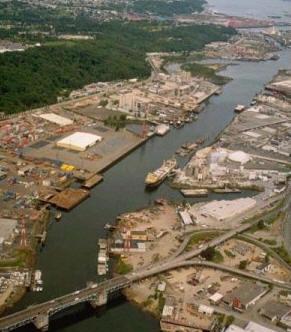 |
|
|
|
|
|
|||
|
By Mike Mitchell |
||||
 |
May 6, 2010 - The Boeing Company has agreed to
undertake two significant habitat restoration projects in The projects are the result of a collaborative effort involving Boeing and the natural resource trustees: NOAA, the Department of the Interior, the U.S. Fish and Wildlife Service, the Washington State Department of Ecology, the Washington State Department of Fish and Wildlife, the Suquamish Tribe and the Muckleshoot Indian Tribe. Under a settlement filed in federal district court
in |
|||
|
|
||||
|
"Restoring injured natural resources in the Lower
Duwamish Waterway is very important, and this settlement is a first step
in that direction," said Ignacia S. Moreno, Assistant Attorney General
for the Justice Department’s Environment and Natural Resources Division.
"Through this settlement, we are sending a signal that we will protect
natural resources and we will act to restore them when they are
injured." "The restoration projects and this settlement
demonstrate what can be accomplished when those responsible for natural
resource injuries cooperate with the natural resource trustees," said
Lois Schiffer, General Counsel of the National Oceanic and Atmospheric
Administration. "Both projects will create new intertidal, marsh and
riparian habitat, which will largely benefit juvenile Chinook salmon, a
fishery that relies on these areas during a critical period in their
life cycles when they are adapting to marine salinity." |
||||

